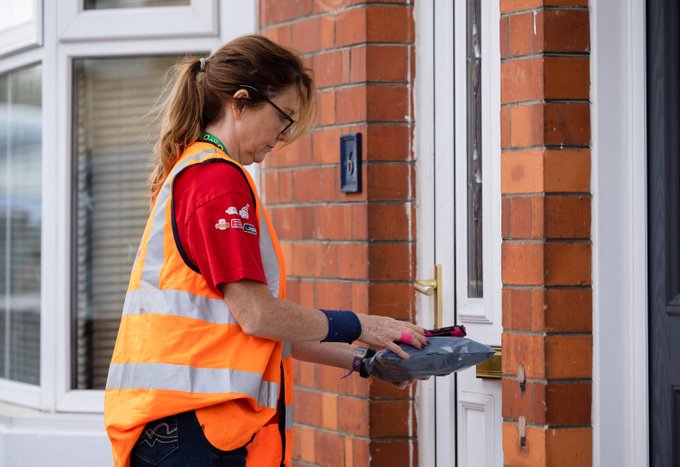The government’s emergency Cobra committee will hold its second meeting of the week later to discuss how to minimise the impact of the wave of industrial action…reports Asian Lite News
Strikes are picking up pace in the run-up to Christmas as workers squeezed by rising costs fight for higher pay.
Rail workers will walk out for a second day, while Royal Mail employees and driving examiners are also striking.
Tuesday’s walkout by rail staff left services running at about a fifth of capacity, on a day when snow, ice and fog hampered road and air travel. Around half of rail lines will be shut again on Wednesday, with no services at all in most of Scotland and Wales.
The first-ever nationwide strike by nurses is also expected to go ahead this week. And on Friday, rail workers, buses, baggage handlers, highway workers and driving examiners will walk out.
The government’s emergency Cobra committee will hold its second meeting of the week later to discuss how to minimise the impact of the wave of industrial action.
Industrial action by 115,000 members of the Communication Workers Union (CWU) coincides with the busiest time of year for Royal Mail when people and businesses are sending Christmas cards and presents.
Some parcel companies claim the Royal Mail strike is having a knock-on effect, and forcing them to delay next-day deliveries as people and firms seek alternative ways to send their post.
DPD Group said: “We are experiencing short delays to our next-day delivery service in a small number of locations, as a result of the industrial action at the Royal Mail, which has had a huge knock-on effect across the entire industry.”
Evri, the delivery company formerly known as Hermes, said that severe weather, Royal Mail strikes and staff shortages are causing “some localised delays”. While Yodel also said that deliveries are taking longer to some areas but did not specify why.
As well as holding strikes this week, Royal Mail workers will also take industrial action on 23 December and Christmas Eve. The dispute has been going on since the summer and like all the industrial action across rail, the NHS, teachers, border staff and driving instructors, pay is a key issue.
Workers are seeking wage rises as the cost of living soars. The rate at which prices are rising, known as inflation, is running at more than 11% which is the fastest pace for more than 40 years.
This is largely due to food and energy prices going up.
One small business in Brighton which relies on Royal Mail to get its products to customers said the strikes in the run-up to Christmas were “frustrating”.
On Wednesday, the Office for National Statistics will announce the inflation figure for November. In October, that rate was 11.1%.
On Tuesday, figures from the ONS revealed that the gap between wage growth in the public and private sector is near a record high.
The average pay rise for workers in the private sector was 6.9% between August and October. That compares to wage growth of just 2.7% for public sector employees.

Leave a Reply